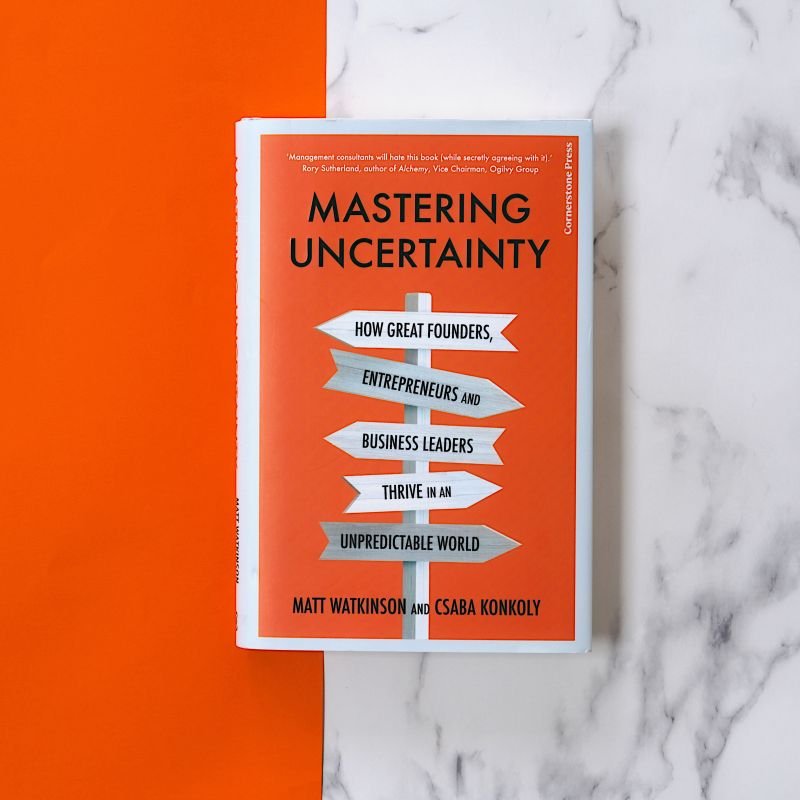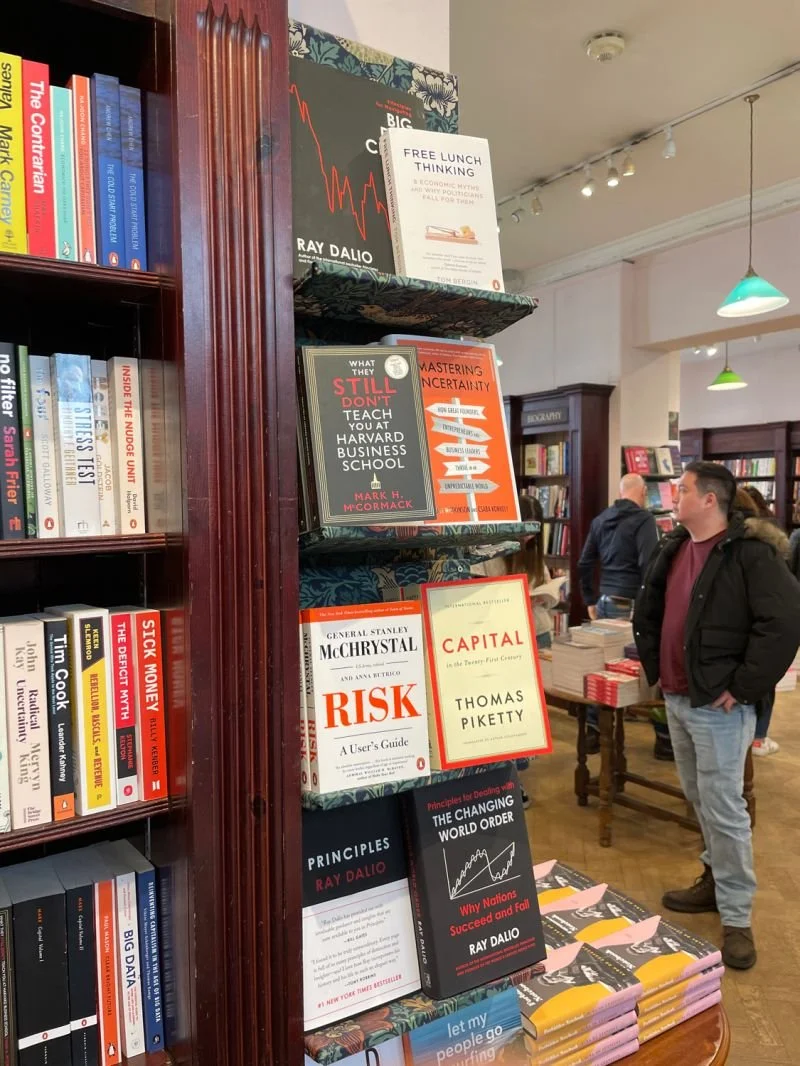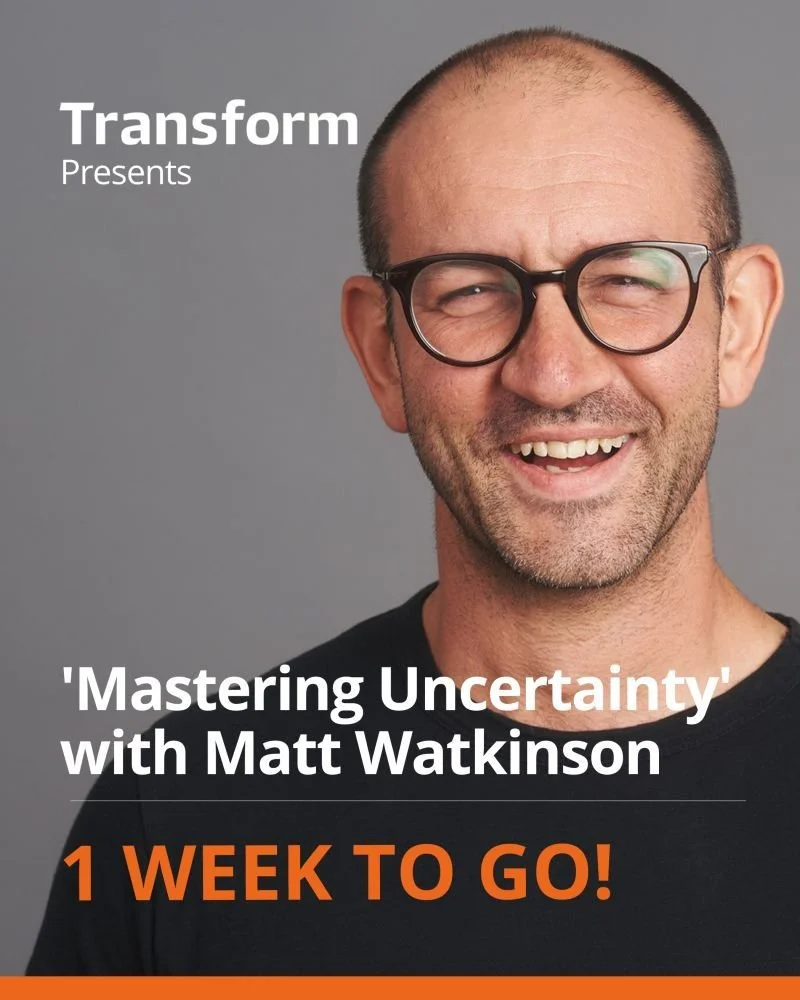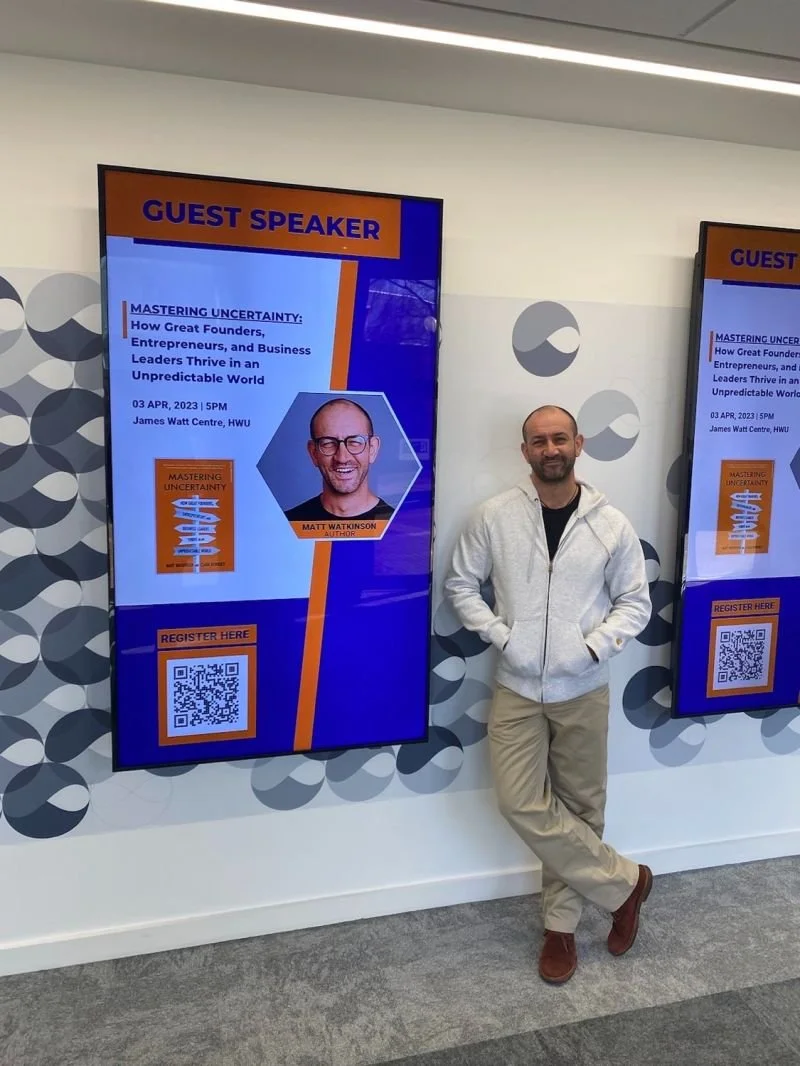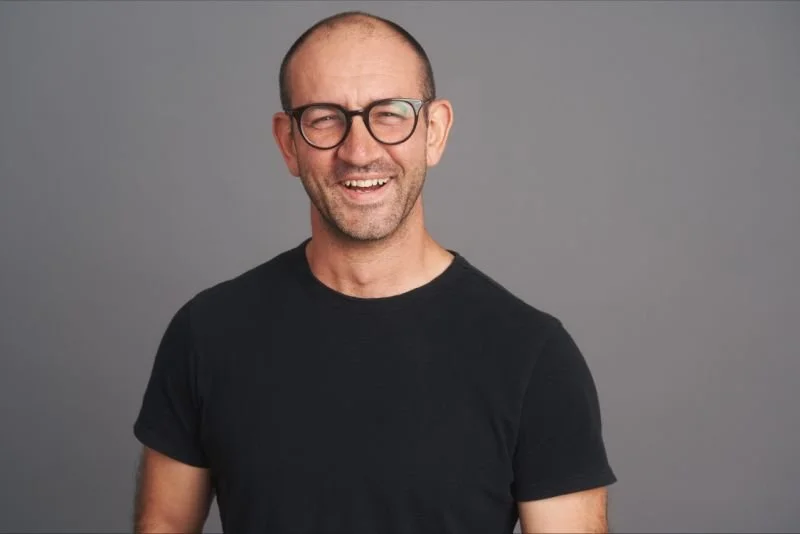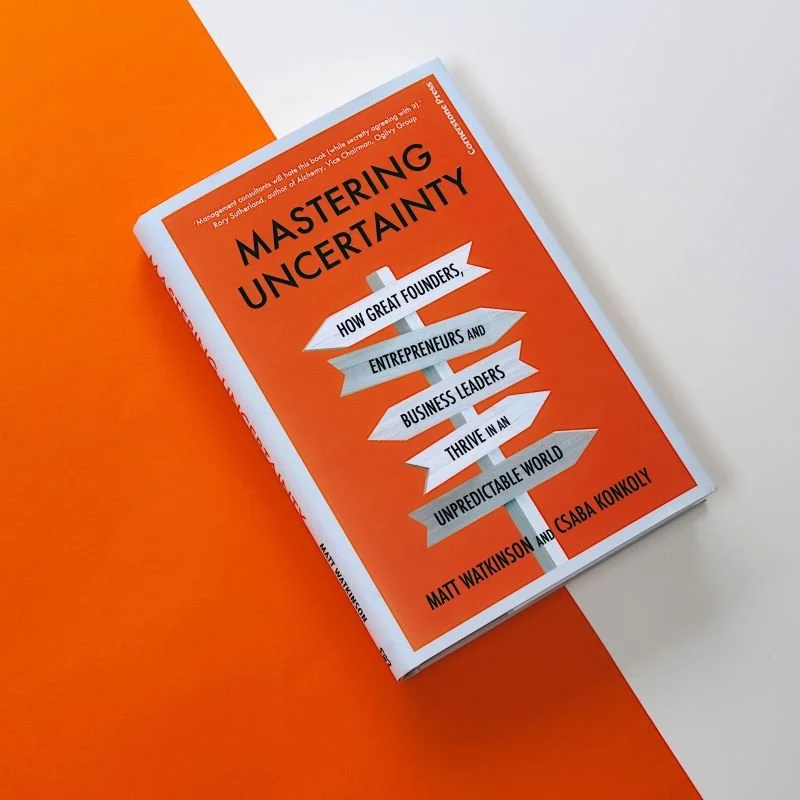These posts are duplicated from LinkedIn, where they’re seen by tens of thousands of people each week. They often spark lively, valuable debate and your voice would be welcome. Visit my profile to connect with me.
9. Don’t be late
Dear Marlowe,
If at all possible, do not be late. It matters.
Time is our only non-renewable resource. It is precious to us and precious to other people. When we are late the message we send to people is that we do not respect their time, and by extension we do not respect them as people.
Strong relationships are not only built on respect, they are built on trust. And trust is built on reliability and meeting expectations. Being late is a form of unreliability and also a failure to meet an agreed expectation. Worse still, it sends a message that we are disorganized, chaotic or incapable of managing our time.
Of course life can get in the way at times — all of us have been late for something or another, we all make mistakes or forget things from time to time. If being late is unavoidable or plans need to change, all you need to do is reset the expectation as soon as possible — when you will be there and what caused the delay — and apologize for the change of plan or mistake.
Love,
Dad
****
Letters to Marlowe is a personal project to pass on valuable life advice to my
See this post on LinkedIn
[See LinkedIn for slideshow]
It's a particularly exciting and nerve-wracking moment for any author when reviews start to appear online, but I gotta say, Csaba Konkoly and I are really delighted with how well this book has been received so far.
We set out to write the most valuable and pragmatic book we could. Based on what people are saying — I've shared some extracts below — it looks like we've hit the mark. Thank you so much for your amazing support so far!
See this post on LinkedIn
The reason companies are faltering in their ambition to become customer centric is because — as a mindset — it is at odds with what it takes to succeed in business.
A business is a system, where what determines success is making trade-offs between multiple, often competing factors, all of which matter.
Sometimes customers are very happy but not enough of them know you exist — awareness is the problem in other words.
Sometimes eliminating a nice-to-have but very expensive feature makes the product slightly less desirable but a lot more profitable. This might be a smart decision but it isn’t exactly customer-centric.
Sometimes building infrastructure at the expense of short-term profit creates an unassailable competitive advantage. This might be a great trade off for the long-term.
Sometimes improving the customer experience protects your pricing power. This might not show returns for years but might still be a great decision.
What’s the point?
A well-run business isn’t “centric” around anything — customers, revenues, costs, competitors, brand, or anything else — it identifies the constraints or biggest opportunities to increase their performance and puts their focus on those. It thinks in terms of compromises and trade-offs for the good of the whole — maintaining performance in some areas, and addressing deficits in others.
This isn’t a radical idea, it’s how every business is run in reality. So thinking in terms of systems rather than centricities will allow you to perform better, and help your discipline add more value — whatever role you play.
See this post on LinkedIn
Successful people typically explain their results by pointing out their work ethic. Rafael Nadal is one such example:
“I don’t think there is any secret [to delivering top performances] other than hard work, dedication and talent.” He said in an interview recently.
These are important factors, sure. But what’s missing from this quote is the inestimable role of good luck.
Nadal’s uncle Tony — a professional tennis coach — discovered and began nurturing his talent when he was just three years old. An extraordinary stroke of good fortune that other similarly hardworking and talented children are very unlikely to get. As Nadal also said, “Without [Uncle Tony] I’d be nothing.”
In reality, you can’t achieve extraordinary success without good luck. It’s just that our hard work and the setbacks we’ve had to overcome are more visible to us.
As Robert H. Frank explains in his book Success and Luck, it’s a bit like riding a bike. Even if you have a big tailwind pushing you along, you still feel the wind resistance against you. The same is true with good fortune and hard work. I am well aware of how hard writing is, for example, but seldom think about the one in six people who are illiterate.
The good news is, considering the role of luck in success has many benefits: it allows you to recognize serendipitous events and capitalize on them, to consciously try to “create your own luck” by various means — meeting more people, experimenting more broadly, or sharing your ideas and aspirations more widely, for example — and it promotes humility and gratitude. All good things.
See this post on LinkedIn
8. Apology accepted
Dear Marlowe,
Never allow pride, shame, embarrassment, or any other unpleasant feeling to prevent you from apologizing when the need arises, and always do so unreservedly.
A sincere apology speaks volumes about your character, your integrity, your respect for others, and how much you value the relationship. It is a vital life skill.
The way we accept apologies from others also speaks volumes. If somebody has the courage and humility to offer a sincere apology to you, it should be accepted with warmth and good grace, and let the matter be forgotten.
Love,
Dad.
****
Letters to Marlowe is a personal project to pass on valuable life advice to my son.
See this post on LinkedIn
Here’s how I won Management Book of the Year (at thirty years old!) for my first book, then secured world rights deals with Penguin Random House for my second and third.
In 2010 I went to visit a friend who was home from military service in Afghanistan. His younger brother was there and we got chatting over a cup of tea.
I happened to mention that I wanted to write a book on the psychological principles behind great customer experiences, and it turned out — purely by chance — that he was interning at one of London’s top literary agents.
He said that if I had a proposal for the book he’d put it on the boss’s desk, gifting me the one in a thousand chance it would actually be read. But he was only working there another week.
I started work on the proposal that evening and toiled night and day until — four days later — I’d crafted the worst business book proposal you’ve ever seen. But I got it done, sent it to him, he gave it to the boss who read it, and invited me in to personally tell me how bad it was.
He did however see some merit in some of the ideas, gave me a ton of advice on how to improve it — which I followed — and I eventually crafted it into an acceptable proposal. Enter the kid brother / intern again, who then bullshitted his way into securing a publishing deal with the FT Press for what became The Ten Principles Behind Great Customer Experiences. It then won the CMI's Management Book of the Year.
Fast forward to 2016 and — having kept in touch with the bigwig agent — he agreed to represent my second book idea, helped me sculpt it into a really strong proposal, and sold it to Random House in a deal I’d never have got otherwise.
In summary, if I hadn’t blurted out my literary aspirations to my school mate’s kid brother over a cup of tea I wouldn’t have written three books, and you wouldn’t be reading this.
There’s a simple lesson here.
People can only help you or contribute to your success if they know what it is you’re working on, are passionate about or what goals you have. Sharing this information — whether in conversations or on social media — massively increases the potential for serendipitous encounters. It helps you create your own luck.
Other ingredients for success also feature: straight-forward coachability, managing relationships for the long-term, and a willingness to give something a go. Three things that, in my opinion at least, are massively underrated.
See this post on LinkedIn
There is a something truly brilliant about waking up to discover your dog has eaten your brand new copy of Mastering Uncertainty.
Thanks for the photo Joe Tarragano
See this post on LinkedIn
Not many people have crashed and burned on stage in front of thousands of people but I did a few years ago.
My talk — in front of the biggest audience I’d ever had — got slammed in the ratings and the event organizers said “I looked like I didn’t want to be there.” It was a humiliating experience.
What went wrong?
In short, I tried to give the presentation I thought they wanted me to give, in the style I thought they'd like. I also — for the first time — studied books on how to do great presentations and tried to incorporate the advice.
The result was a sort of paint-by-numbers effort. It felt wooden and contrived, and everything that previous audiences had enjoyed about my presentations — the tone, style and delivery — was missing. It was totally lacking authenticity.
Here is the vital lesson you can learn from my mistake: what makes your presentation special is you.
If you’re by nature casual, be casual. If you’re energetic, be energetic. If you’re funny, be funny. If you’re eccentric, be eccentric. Don’t try to be someone you’re not or present in a way that clashes with your personality to try and suit the audience or environment. You have to ignore them to give them what they really want.
Above all, give the presentation you want to give, with the content, examples, and stories that you’re excited by. The audience can tell when you’re speaking your truth. That is what they will connect with. Everything else is secondary.
Make your presentation a truthful expression of your personality, passion and life experience and you'll crush it.
See this post on LinkedIn
Picture the scene. Your logistics startup is cratering, you can’t secure a loan, and you don’t have enough money in the bank to pay your $24,000 jet fuel bill let alone anything else. What do you do?
When Fred Smith found himself in such a situation he arrived at an unconventional solution. He hopped on a plane to Las Vegas with the last $5000 his company had in the bank, and put it on the blackjack table.
Lucky for Fred he won $27,500, leaving $3000 left after the fuel bill and was able to keep the company going. That company is alive and well today. It’s called FedEx.
This little vignette illustrates two important points:
1. Case studies almost always explain business success or failure through the lens of strategy, analysis, and positioning, which is why this story (and the thousands of others like it) are not that widely known, and why we put so much faith in upfront planning and pseudo-scientific analysis of the market.
But these case studies are just post-rationalizations which are deeply misleading. What is far more important, as the story demonstrates, is tenacity, creativity, adaptability and comfort with taking risks. The business model canvas or Porter's five forces aren't coming to save you in your hour of need.
2. Successful entrepreneurs focus on their downside not their upside. In Fred's position, what’s the downside in gambling the money? Answer: there isn’t one. If he loses all five grand his business is just as screwed as if the five grand is still in the bank.
To understand more about these vital topics — how to get out of analysis paralysis, adopt a mindset that can cope with the unexpected, and think like a seasoned entrepreneur — Mastering Uncertainty is the book for you.
#entrepreneurship #strategy #startupadvice
See this post on LinkedIn
Uncertainty in the startup world is an inevitability, especially if we’re pursuing bold, potentially game-changing ideas.
To help startup founders and CEOs navigate this landscape, my Mastering Uncertainty co-author Csaba Konkoly and I have written a piece for Fast Company about how VC investors approach the issue, with lessons leaders can apply to their own companies.
Here are three key messages:
Spread your bets
VCs take thousands of pitch meetings, and invest in dozens of companies each year. For founders, this lesson of spreading your bets applies to both product experimentation and the process of raising capital.
Think “affordable loss” not “return on investment”
By definition, innovation involves risk and confronting uncertainty. Affordable loss is the only financial guardrail that makes sense in this context, where the potential upside of decisions is unknowable in advance.
Don’t take failure personally
Like VC investors, founders must remain optimistic when taking risks. Focus on the process, not the outcome, reframe failures and setbacks as lessons, and stay adaptable!
Read the full article here: https://bit.ly/3GJuFwM
#startups #VC #founders
See this post on LinkedIn
It’s a fantastic feeling wandering around London and seeing Mastering Uncertainty on display in the bookshops, from beautiful independents in Primrose Hill and Marylebone to the big Waterstone’s dotted around the city.
I love my kindle and have bought hundreds of books online, but nosing around a bookshop and discovering titles that would never be on my radar otherwise is a simple pleasure that never gets old.
See this post on LinkedIn
In keeping with the thematic motifs in the book of chance, luck, serendipity and good fortune, Lucy Mann is very generously giving away a copy of both Mastering Uncertainty and The Grid to a lucky podcast listener.
As your trusted advisor I should point out that this is an opportunity with no downside and potentially life-changing upside 😉
Thank you for the thoughtful questions Lucy. I’m grateful for the opportunity.
See this post on LinkedIn
I’m forty today.
I was going to try to write some profound reflections on my thirties but actually I’m just grateful for the experiences I’ve had and the amazing people in my life. There’s nothing more to say really.
Thanks for all the birthday messages and support with the new book. You lot are great.
See this post on LinkedIn
Please join me on my last night in town! I'll be speaking about my new book Mastering Uncertainty with the wonderful Emma Robertson at Transform's office on Great Portland Street next Wednesday, April 12 between 5:00-7:30pm and you're invited.
Email TransformPresents@transformUK.com if you'd like to come along. It will be great to see you!
ps. — I know it was a week to go yesterday but feel free to rain your pedantry down on me anyway.
See this post on LinkedIn
There are worse ways to start the day that a jentle jog / gentle gog / yentle yog around Regent’s Park and up Primrose Hill.
Great to be back in London today to speak at Foolproof about Mastering Uncertainty.
The book has been out in the wild for a few days now and it is very gratifying to see people posting about it, messaging me to share their favourite bits, and seeing it cropping up everywhere from Mozambique to Melbourne. Keep it coming!
Thank you thank you thank you. 🙏
See this post on LinkedIn
[See LinkedIn for video]
Winning hearts and minds wherever I go. 💪
On a serious note the National Robotarium at Heriot Watt is mind-blowing.
Ps. No robots were harmed in the making of this video. It popped right up again in an amazing and slightly terrifying way after I sent it sprawling.
What a time to be alive.
See this post on LinkedIn
Great to be up in Edinburgh at Heriot Watt University to talk about Mastering Uncertainty this evening.
It is so exciting to be sharing the ideas from this book at last and the feedback so far has been awesome.
I’m especially grateful to David Richardson for inviting me here. Any opportunity to speak is an immense privilege and this is certainly no exception.
See this post on LinkedIn
Are you in Edinburgh? Me too! Well, nearly…
I’m heading there this weekend to speak about Mastering Uncertainty at an event that is very generously being hosted by Heriot Watt University on Monday at 5pm.
If you’d like to come - or know someone who would - a link to the eventbrite page is in the comments.
I’m also loitering in the area on the Tuesday if anyone wants to say hi. That my bestie Ben Smith part owns a bar there should be all the encouragement you need…
See this post on LinkedIn
Almost exactly ten years after my first book was published — and just in time for my 40th birthday — Mastering Uncertainty is now on sale in the UK.
It’s available in hardback, paperback, e-book and audiobook — narrated by yours truly.
Here’s a few things I’d like you to know about it.
I consider it the best of my three books to date.
As you’d hope, my writing has improved significantly with a decade of practice — especially noun and verb selection, structure and texture. Consequentially the book is concise and easy to read, but also has colour and personality — a combination I find is often lacking in the genre.
I’ve kept what works.
I know what readers of my previous books have liked: real world examples and stories that bring the points to life, practical stuff that you could literally do differently immediately, strong supporting evidence and research, and chapters that you can read in a single sitting. You’ll find all those boxes ticked.
I’ve opened up a little.
Before I could share the lessons in this book I had to learn them — mostly from my co-author Csaba Konkoly — and the experience shook my tree pretty hard. It profoundly affected my worldview and caused a wholesale reassessment of many life events, all for the better I should add. It is fitting that I share these things in the book because I believe many readers will experience something similar and they should know this is a path that the author himself continues to tread.
Finally, you will learn about the following things.
1. Why the business environment is inherently unpredictable.
2. The fatal flaws at the heart of traditional business education which set people up to fail.
3. The optimum mindset to thrive in an unpredictable world, including how to begin dismantling fear of failure.
4. How to manage relationships in such a way that you can dramatically increase the likelihood of serendipitous encounters.
5. How to sell (so far this seems to be the most popular chapter which surprised me)
6. The radically different approach expert entrepreneurs take to starting new businesses
7. The ten paths to growth available to every business
8. Lessons for leaders and managers who want to create organizations that embrace and thrive on uncertainty
Hard sell over. I hope you enjoy it. Link to the amazon page in the comments.
Thanks for your support, and if you have any questions about the book I am here to answer them.
See this post on LinkedIn
There was a full house at Books for Breakfast this morning at Soho House, hosted by the inimitable Richard K..
This wss my first time talking about the ideas in Mastering Uncertainty and if the reaction is anything to go by we’re off to a very, very good start. 🚀
Thanks to everyone who attended for showing up at 8:30am on a grey London morning. It is much appreciated.
See this post on LinkedIn


